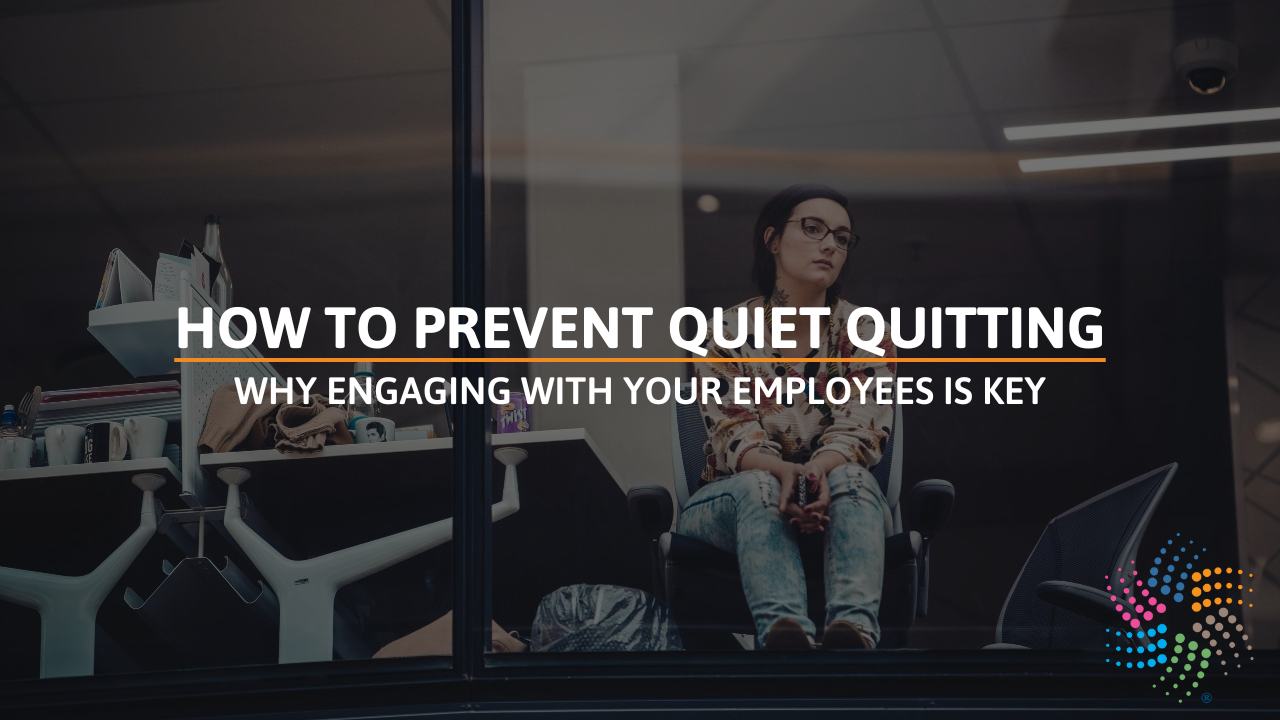How to Prevent Quiet Quitting
Dec 05, 2022
You've been hearing about it everywhere: quiet quitting.
But what is it, and do you need to be concerned as a leader?
The Definition of Quiet Quitting
Quiet quitting is a form of disengagement where employees fulfill the bare minimum requirements and do nothing beyond their job description. It's also known as "silent quitting" and for a leader, it makes running a team even more difficult.
Gallup has found that, "U.S. employee engagement took another step backward during the second quarter of 2022, with the proportion of engaged workers remaining at 32% but the proportion of actively disengaged increasing to 18%. The ratio of engaged to actively disengaged employees is now 1.8 to 1, the lowest in almost a decade."
The proof is there: employees are setting records when it comes to being disengaged and not in a good way.
Knowing what quiet quitting is is the first step. But how do employees get to a place where they are "checked out" in the office?
Why Does Quiet Quitting Happen?
As hard as it may be, it's time to take a look in the mirror. Employees become disengaged for a variety of reasons, but one common factor is that many leaders are not developing them and guiding them so they feel a sense of purpose and belonging at their company.
If an employee doesn't feel like their role matters, it's easy to see how they would not feel the need to go above and beyond.
The good news is there are ways to both prevent and reverse quiet quitting in your organization!
How to Prevent Quiet Quitting
1. Express appreciation and gratitude regularly. Don't wait for something amazing to happen before you celebrate. Celebrate the small wins and recognize the value your team members bring to the table. Be sure not to take your people for granted.
2. Provide proper compensation for overtime (when possible). This will help keep the "overtime" short-term and not burn out your people because they will feel like they are getting what they deserve for the time they are giving, and your company won't take advantage.
3. Support employee wellbeing. When your people are feeling good and supported overall, they will show up better as a whole! An employee's mental health should be a high priority, so be sure the workplace is supporting and not hindering their mental health.
Talent Magnet Institute is here to help solve problems for businesses, including quiet quitting. We would love to share our process of retention with you so quiet quitting won't have a chance to impact YOUR company.
You can book a call with us by clicking here.

